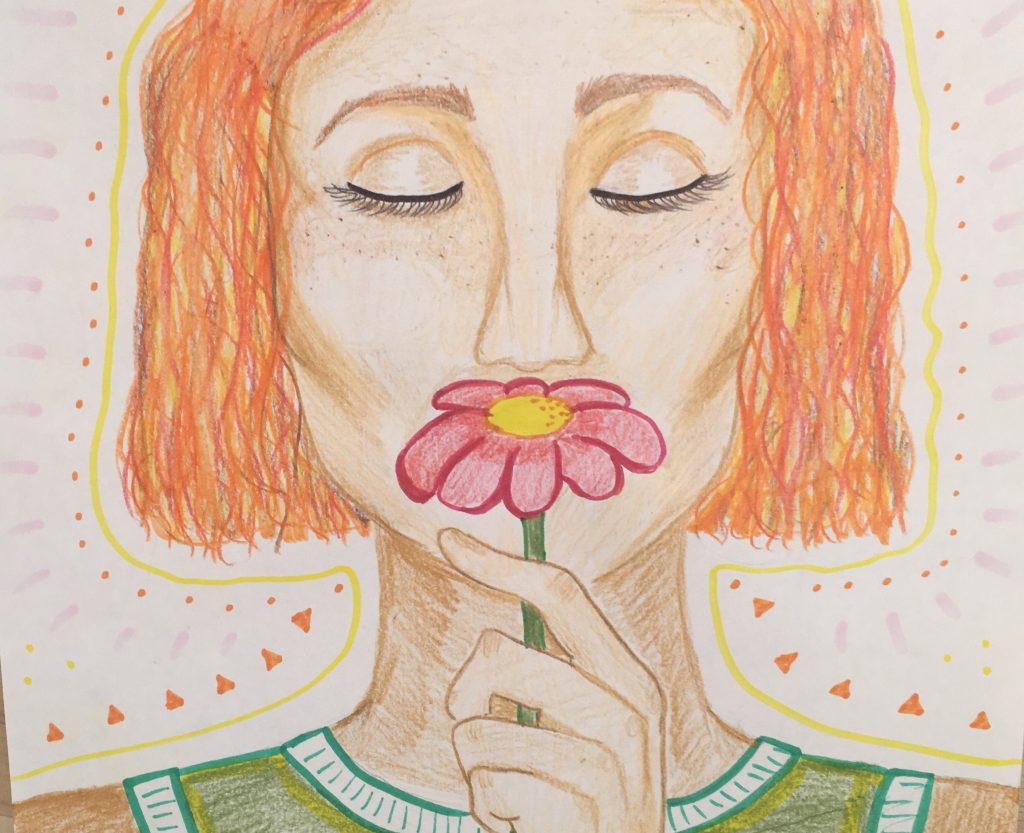I licked the last drops of stracciatella gelato, savoring my third cup of the day. Across the mesmerizing blue lake, the Alps encompassed the horizon. I looked around for my mom and saw her lingering at a little broken wooden table full of necklaces and handmade mirrors.
We were in Varenna, Lake Como, Italy. A frail African man sat behind the table fiddling with some carving tools. Beside him was a small baby carriage with a few blonde hairs poking out from beneath a gray blanket. As I was about to turn around and continue taking pictures of my sister doodling, I looked back and noticed the racial difference between the father and baby. He stroked the baby’s forehead and fumbled for a worn-out bottle of milk that lay on the bottom of the stroller. He soon started a conversation with my mom.
“Would you like to buy this spoon? Only 15 euro!”
With that simple question, he and my mom delved into an hour-long conversation ranging from making handicrafts, to beliefs of various religions. Slowly the interaction between my mom and this rugged-looking man attracted my whole family to the table.
Originally from Kenya, the craftsman, named Ali, traveled from his hometown to Lake Como frequently as his wife and son lived there. Back in Kenya he had a business selling cooking gas, so selling these crafts was just a hobby. The table was set out with decorated mirrors and bowls. Ali emphasized that he just loved making these artifacts and showing them to the people in Lake Como and starting conversations with them. Besides keeping him entertained and happy, the crafts helped him earn money to pay for the expensive plane tickets to maintain his long-distance relationship with his wife. His life was stressful with responsibility and duty towards his family and his business at home in Africa, and little money to spare.
While he told the story of his life, I noticed how enthusiastic and happy he looked. I was surprised that a man with such little material wealth could have so much happiness, just by talking to people and making handicrafts.
When I returned home to New Jersey, I remembered the highlight of the trip: gazing over the red-roofed houses and mountains of Italy, letting my mind take in the satisfaction of having such beautiful sights in front of my eyes. I realized that if simply looking over the landscape of Italy could create happiness, anything could.
Ali found his happiness in doing what he loved and finding new people to tell his stories to. I didn’t need to be in Italy to feel more content and happier than ever. I could easily be at my desk, looking out my own window and enjoying the summer heat and lush green trees.
I found that happiness does not have to depend on any external situations. It comes from the internal situations we create in your own minds. Certain events are known to bring us happiness, like having a nice family vacation somewhere beautiful or going to the beach. I wondered, if something happened and affected these external situations, would I still be happy? Ali showed me that just creating a vision in my head of feeling happy and being satisfied could overpower any situation that ordinarily would make me feel otherwise.
I soon discovered I could also apply this concept to other emotions. I remembered weeks when I was overloaded with work during my freshman year of high school. By just believing and repeating to myself that I was stressed, I made it much easier to be really stressed.
If we choose to be unsatisfied with life we can easily make our life unnecessarily miserable, even if we have everything we ever wanted.
After I discovered this on our trip to Italy, I found myself striving to feel happy, regardless of the myriad things I could potentially complain or be grumpy about. I remember returning from vacation and choosing to accept the boring and humid summer days, because I realized that I am responsible for my own happiness—which should not be dependent on any plans or objects.
My encounter with Ali made me look at life with a different perspective. I found that happiness triggered by a certain event, such as visiting a beautiful country, felt different than general, everyday happiness. The former gives a temporary feeling of pleasure and satisfaction, which is completely dependent on life’s events.
I believe that true happiness isn’t going to Italy or meeting up with friends, which may bring you temporary pleasure, but a feeling that isn’t dependent on your life situation. It comes with gratitude and acceptance, and by choosing to be happy. Our society is known to be pleasure-seeking and sometimes materialistic. It’s not easy to get out of that rut and learn to appreciate the smallest of things, but Ali led me to my steps toward creating a permanent feeling of contentment.
As they say, life is like a roller coaster—it has its ups and downs—but you can choose to scream or enjoy the ride.
Vanita Sharma
opinion editor
Graphic: Nicole Kye

